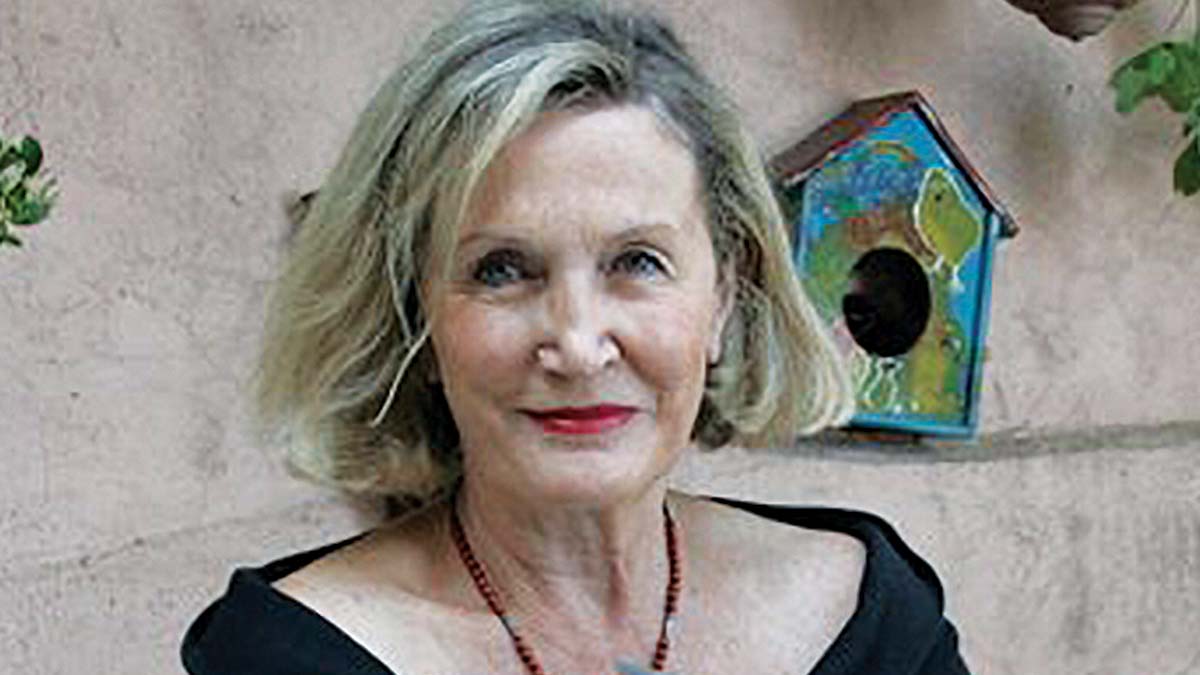AS I SEE IT
MARIANNE HERON
Seen in the rear-view mirror some of the fashions and mores of the past appear ridiculous or morally unacceptable. The wearing of whalebone crinolines and the child labour of Victorian times now seem outrageous.
Among the sillier practices that are a thing currently, it seems to me, are shaming individuals and renaming places called after them, cancelling others due to their beliefs or primly rewriting books. It’s the kind of finger wagging, virtue signalling which insists that figures from the past should be taken down a peg or two because some aspect of their behaviour doesn’t chime with current values.
Statues of these individuals are toppled or their names are excluded from the walls of fame. The trend smacks of George Orwell’s prescient novel 1984 where the fictional Party believes that history stands in the way of its total domination of the people. The character Winston’s job is to ‘rectify’ history by rewriting The Times newspaper and sending the results off to the Party’s records office. “Every statue and street and building has been renamed, every date has been altered. And that process is continuing day by day and minute by minute. History has been stopped,” wrote Orwell.
Examples of retrospective shaming include the decision to ‘un-name’ the Berkely library in Trinity College because of his connection with slavery. Bishop George Berkeley was an eminent philosopher, lauded for his development of the theory of immaterialism and whose ideas on perception and the importance of language were centuries ahead of his time. During his lifetime (1685-1753) the bishop was involved briefly in a plan to build an ideal city in Bermuda and had a plantation in the US worked by slaves. However, the movement against slavery, which dates back through the mists of time, didn’t start until decades after Berkeley’s death and slavery was finally outlawed in Britain in 1833.
What does this ‘un-naming’ achieve? It doesn’t change the history of slavery, or alter its legacy. At most it makes a few academics feel important and that they are ‘woke’ by removing the name of someone who in many other respects deserves to be celebrated. Trinity itself played a part in colonisation, part of the reason for its foundation was to educate personnel involved in the plantation of Ireland. Should the college be re-named?
Simone de Beauvoir also got the thumbs down from Trinity recently, when her name was dropped from a list of candidates to have their statues placed in the college’s Long Library on slim evidence of her alleged grooming of sexual partners for her partner Jean-Paul Sartre and herself. De Beauvoir, a feminist, philosopher and award- winning author is most celebrated for her 1949 Second Sex advocating equality for women which became a seminal influence for the modern women’s liberation movement. Simone and Jean-Paul, her life long partner, had an open relationship allowing many lovers, which raised eyebrows in those days where Simone was concerned but not– predictably, given double standards – with Sartre.
Recently, publishers Puffin ‘rectified’ Roald Dahl’s beloved Charlie And The Chocolate Factory, removing “potentially offensive language” and rewriting whole passages. When this is done the original character of the author and the writing are lost to us. Or in another example of cultural censorship Dutch students refused to stage Waiting For Godot because only male actors were allowed to audition for the production, as Beckett’s explicit instructions were that only males were allowed to play the parts.
Just where do you draw the line when it comes to renaming and cancelling – when it comes to judging the past by today’s standards? Dig around a bit in the lives of historic celebrities and you well come up with something to arouse modern disapproval. Just suppose, for instance, that something unsavoury was discovered about Shakespeare’s activities, should things associated with the bard be renamed and delisted?
Or imagine, highly unlikely of course, that Archbishop Thomas Croke, champion of the GAA and the Irish language after whom Croke Park was named in 1913 had done something nefarious, would ‘Croker’ have to be renamed? Sure, you would hardly know where you were if this shaming and renaming takes off in a way reminiscent of Orwell’s 1984.
Perhaps the people who engage in rectifying will come to be judged in the future. This one was found to have bought fast fashion, that one was found to have been anti-trans, so down with their names. It’s worth remembering that adage, judge that ye be not judged.

















